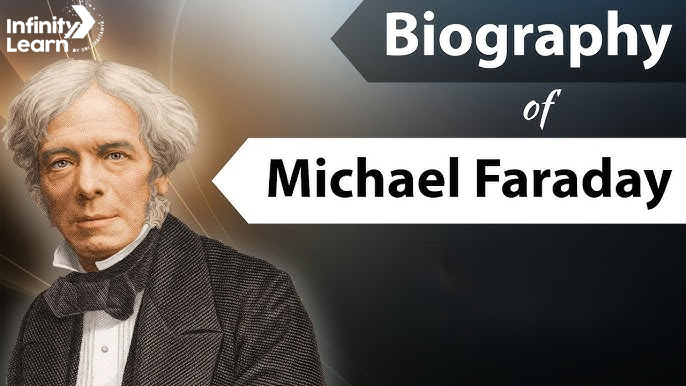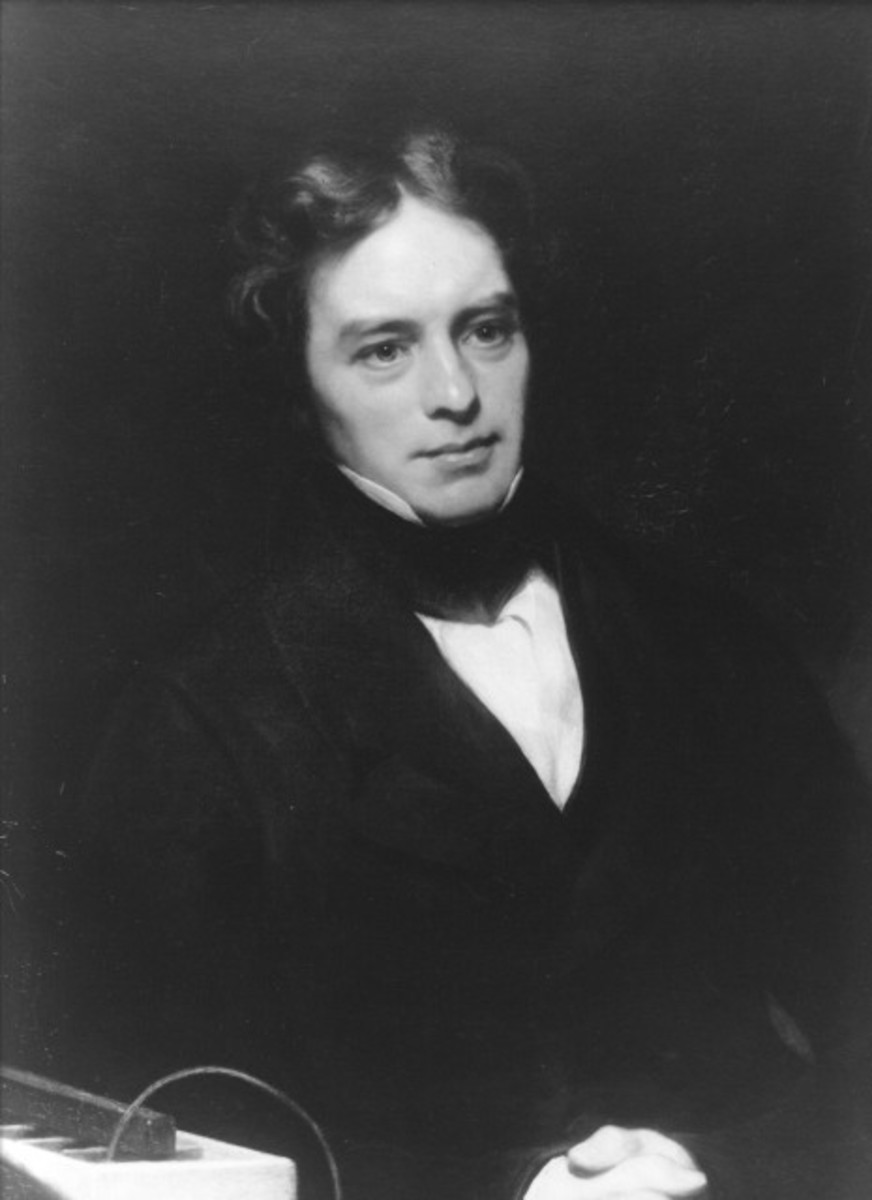Table of Contents
About Michael Faraday
Michael Faraday was born on September 22, 1791, in Newington Butts, England. He came from a humble background, with his father, James, being a blacksmith, and his mother, Margaret, a former servant. Faraday was the third of four brothers and was raised in a close-knit family with strong religious beliefs. Michael Faraday is renowned for his groundbreaking work in the field of electromagnetism. Michael Faraday died on August 25, 1867, at Hampton Court, London, England. Michael Faraday cause of death remains unknown, as he passed away peacefully due to natural reasons. His legacy lives on through his pioneering contributions to science and his enduring impact on the field of electromagnetism.
Michael Faraday Biography: Early Life
Born in Newington, Surrey, England in 1791, Faraday’s family faced financial struggles. His father was a blacksmith, and young Michael received only a basic education at a local church school. However, his thirst for knowledge led him to devour books on science whenever he had the chance.

Michael Faraday Education
Faraday’s turning point came at the age of 14 when he was apprenticed to a bookbinder and bookseller. This job exposed him to a vast collection of scientific books and journals, which he eagerly studied in his spare time. He also attended public lectures by renowned scientists like Humphry Davy, further igniting his passion for science.
Michael Faraday Experiment
Michael Faraday’s experiments were pivotal in shaping our understanding of electromagnetism and electrochemistry. He was known for his meticulous methodology and the precision with which he documented every observation. Here are some of the key experiments conducted by Faraday that have had a lasting impact on science:
- Electromagnetic Induction: Faraday discovered that a changing magnetic field induces an electric current in a nearby conductor, a phenomenon known as electromagnetic induction.
- Faraday’s Law of Induction: This law states that the induced electromotive force in any closed circuit is equal to the rate of change of the magnetic flux through the circuit.
- Faraday’s Laws of Electrolysis: Faraday formulated laws that describe the quantitative relationships between the amount of substance produced at an electrode during electrolysis and the current flowing through the electrolyte.
- Faraday Effect: Faraday observed the rotation of the plane of polarization of light in the presence of a magnetic field, known as the Faraday effect.
- Diamagnetism: Faraday discovered diamagnetism, the property of certain materials to be weakly repelled by magnetic fields.
- Faraday Cage: He invented the Faraday cage, a structure that shields its contents from external electric fields.
- Electric Motor: Faraday invented the first electric motor, demonstrating the conversion of electrical energy into mechanical motion.
- Electric Generator: He developed the first electromagnetic generator, which converts mechanical energy into electrical energy.
These experiments and discoveries by Michael Faraday laid the foundation for modern electromagnetism and have had a profound impact on various fields of science and technology.
Michael Faraday Inventions
Michael Faraday Contribution
Michael Faraday Images

Michael Faraday Award
Michael Faraday was honored with several prestigious awards for his remarkable scientific contributions. These accolades include:
- The Royal Medal
- The Bakerian Medal
- The Copley Medal
These awards recognized Faraday’s groundbreaking work and significant impact on the field of science.
Michael Faraday Quotes
Faraday was known for his eloquence and ability to explain complex scientific concepts in a clear and concise manner. Here are some of his famous quotes:
- “The highest result of education is tolerance.”
- “Nothing is too little to be significant.”
- “Work as a hard as you can and leave the rest to fate.”
Later life of Michael Faraday
In his later life, Michael Faraday ended his long association with the Royal Institution in 1865 after over 50 years of service. He passed away on August 25, 1867, at his residence in Hampton Court, where he had been residing in official lodgings due to his significant contributions to science.
Unknown Facts About Michael Faraday
Here are some lesser-known facts about Michael Faraday:
- Faraday declined a knighthood from Queen Victoria, preferring to remain “plain Mr. Faraday.”
- He suffered from a form of synesthesia, a condition in which stimulation of one sense can lead to experiences in another sense.
- Faraday was a devout Christian and believed that science and religion could coexist.
- Self-educated: Taught himself chemistry, physics, and electricity while working as a bookbinder’s apprentice.
- Notebook launched his career: Sent detailed notes to Sir Humphry Davy, who hired him as a lab assistant.
- Memory issues: Experienced vertigo, depression, and forgetfulness at age 48, possibly due to mercury poisoning.
- Einstein’s hero: Einstein kept a portrait of Faraday in his home, regarding him as a personal hero.
- Modest burial: Declined burial at Westminster Abbey, choosing instead to be buried at Highgate Cemetery with his wife Sarah.
Michael Faraday’s legacy continues to inspire scientists and engineers worldwide. His dedication to research, his relentless curiosity, and his commitment to clear communication make him a true scientific icon.
FAQs on Michael Faraday
How did Michael Faraday change the world?
Michael Faraday changed the world through his groundbreaking discoveries in electromagnetism and chemistry, laying the foundation for modern technologies like electric power generation.
How did Michael Faraday die?
Michael Faraday died of natural causes on August 25, 1867, at the age of 75, leaving behind a legacy of scientific achievements.
What did Michael Faraday invent?
Michael Faraday invented the electric motor, discovered electromagnetic induction, and made significant contributions to the understanding of electromagnetism and chemistry.
Who is Michael Faraday?
Michael Faraday was an English scientist known for his pioneering work in electromagnetism and chemistry, making significant contributions to science in the 19th century.
What is Michael Faraday most famous for?
Michael Faraday is most famous for his discoveries in electromagnetism, including electromagnetic induction and the invention of the electric motor, revolutionizing the field of physics.








